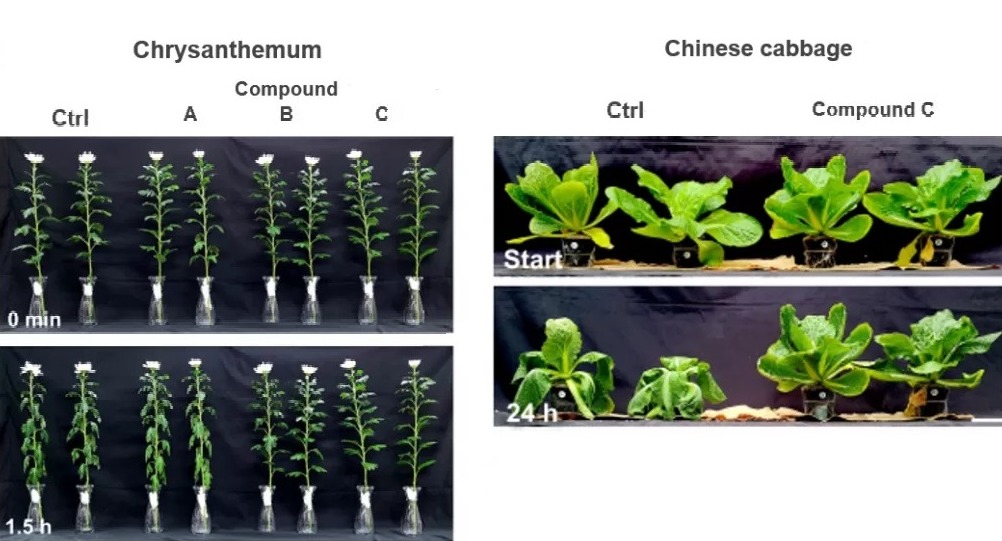Freshness Preservatives for Vegetables and Flowers
KEY INFORMATION
Life Sciences - Agriculture & Aquaculture
TECHNOLOGY OVERVIEW
Stomata, tiny pores on the surface of leaves, are opened or closed under the control of a pair of guard cells for gas exchange with the atmosphere. Through these pores, plants uptake the carbon dioxide necessary for photosynthesis and release water by transpiration, which enhances the uptake of nutrients from the roots. Therefore, regulation of stomatal openings is essential for plant growth and survival in response to various environmental conditions.
Improper regulation or dysfunction of stomata can lead to drying out and wilting of vegetables and flowers, resulting in loss of freshness during transportation and hence, wastages. Following a study to improve plants’ drying tolerance and productivity by controlling the opening and closing of plant pores, the research team has identified natural compounds that have the effect of closing the stomata to preserve freshness and successfully developed more potent analogs.
The research team is looking for companies to partner in joint development of applications such as sprays and volatile sheets as freshness retention agents for vegetables and flowers.
TECHNOLOGY FEATURES & SPECIFICATIONS
- Freshness preservatives based on analogs of a natural compound found in plants of the order Brassicales
- Up to 66 times more potent than the natural compound, offering drought resistance to plants
- Maintains freshness of leafy vegetables and flowers by preventing drying and wilting through the closing the stomata
- Application timing is flexible, can be applied whenever drought resistance is needed
- Suitable for water-based formulations
POTENTIAL APPLICATIONS
These compounds can be used for the vegetable and flower distribution industry. They could be formulated into various formats to be delivered via direct application, spraying, and volatilisation through packaging materials.
Unique Value Proposition
By delivering the naturally occurring components of this technology to the leaves and flowers of vegetables and flowering plants, the pores can be closed for an extended period, preventing drying and fading. Unlike existing solutions like abscisic acid derivatives, this compound does not have side effects such as growth inhibition and seed germination suppression.


